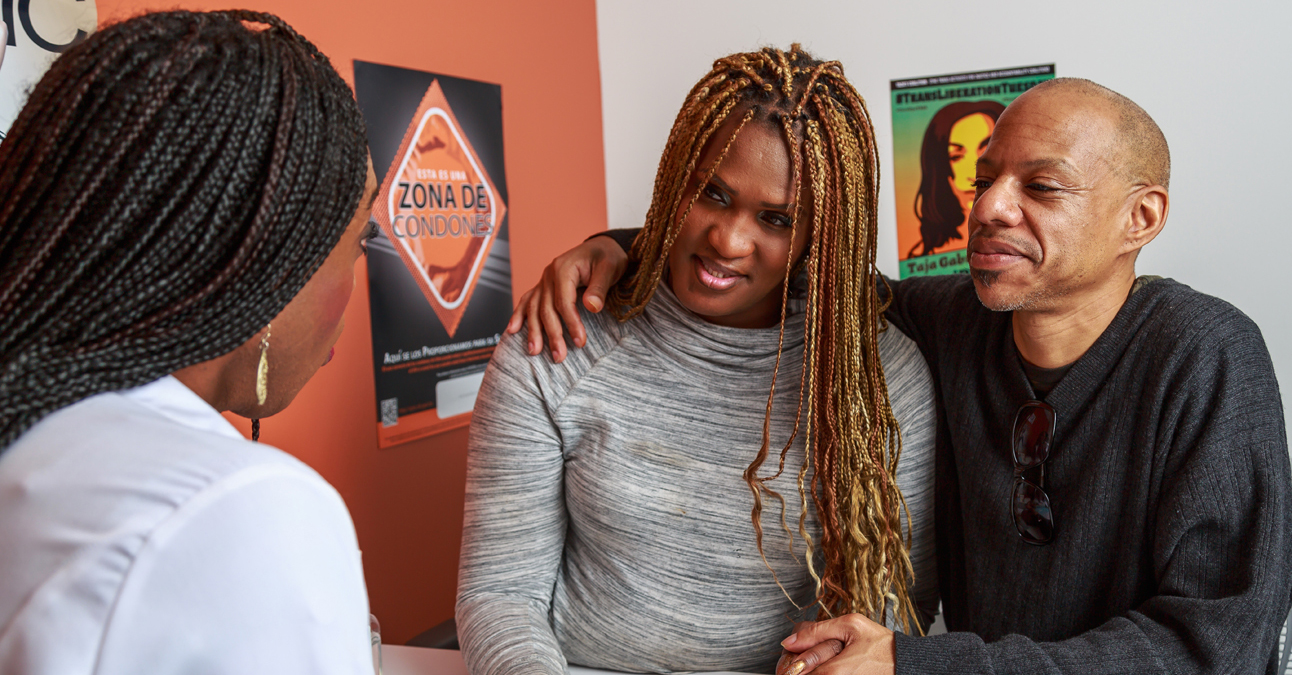Michigan Public Health to Launch HIV Prevention Program for Transgender Women and Their Partners

New Project Led by Kristi Gamarel
More than 20 percent of transgender women are currently living with HIV, and transgender women are nearly 50 times more likely to contract HIV than cisgender individuals.
In an effort to address this health inequity, a research team led by the University of Michigan in partnership with Brown University and the University of California, San Francisco, will launch a couples-based intervention program aimed at preventing HIV for transgender women and their partners.
"Despite alarmingly high rates of HIV, there are limited HIV prevention strategies tailored to the transgender community," said Kristi Gamarel, one of the lead researchers for the program and an assistant professor of Health Behavior and Health Education at the University of Michigan School of Public Health. "We hope to confirm the effectiveness of our program and then eventually roll it out to other communities."
With funding from the National Institutes of Health, researchers will enroll 100 couples in the San Francisco area in the trial and follow them over one year. Transgender women and their partners will attend three to five counseling sessions together, where they will focus on practicing communication skills and working together to set relationship goals. In addition, counselors will provide education on prevention strategies for HIV and other sexually transmitted diseases as well as HIV testing. Participants will also discuss experiences of stigma related to gender identity and sexuality and their impact on behavior and sexual health.
"While we're seeing societal change when it comes to transgender health issues, we are still nowhere near equity. When we think of trans women—and trans women of color in particular—their needs have never really been met. I'm particularly excited to be able to develop a program in partnership with trans women that is addressing the needs of this community."
-Kristi Gamarel
"Even in intimate partnerships, people make a lot of assumptions about what the other person wants and needs," Gamarel said. "A lot of couples never explicitly have conversations about things like monogamy and HIV status. Our program encourages those conversations in a supportive environment.
"In addition, compared to other couples, those in which one partner is transgender face a tremendous amount of stigma and discrimination. This intervention helps them communicate as a couple and address those factors and how they affect their relationship."
The program is based on a promising couples-based HIV prevention intervention that Don Operario, professor of Public Health at Brown University, piloted in 2013 and 2014. Couples who participated in the intervention reported a significant reduction in condomless sex with their primary partners and significantly fewer casual sex partners compared to couples who did not participate in the intervention.
"Our research team is fortunate for this opportunity to learn from and work in partnership with members of the trans community," Operario said. "As public health and HIV prevention scientists, we know that some of the most important components of any HIV prevention program include humility on behalf of the program planners and evaluators, respect and recognition of local expertise, as well as commitment to the best research methods possible."
The program was designed in partnership with transgender women, and the counseling sessions will be led by transgender women.
"We are lucky to have an incredible team of thought leaders from transgender communities as partners on this project," said Jae Sevelius, another lead researcher and an associate professor at the University of California, San Francisco. "In our community-based research in San Francisco, we've learned that the leadership of trans people is critical to the development of effective health strategies for our communities."
One of the goals of the program is to work toward health equity for the transgender community.
"While we're seeing societal change when it comes to transgender health issues, we are still nowhere near equity," Gamarel said. "When we think of trans women—and trans women of color in particular—their needs have never really been met. Only in the last couple years have they begun to be disentangled from gay men. I'm particularly excited to be able to develop a program in partnership with trans women that is addressing the needs of this community."
In San Francisco, where the intervention is being tested, transgender women have access to gender-affirming clinics and other health care services tailored to their needs, Gamarel said.
"The next steps will be to look at how we would do something like this in a place like Detroit or Flint, where there is less access to these resources," she said. "We want to think about scaling this up and building capacity for communities here and other places."
Other collaborators include Danielle Castro, Deepalika Chakravarty, Akira Jackson, Mallory Johnson, Rachel Kaplan, Breonna McCree, and Torsten Neilands from the University of California, San Francisco; Lynae Darbes from the University of Michigan; and Tooru Nemoto from the Public Health Institute.
